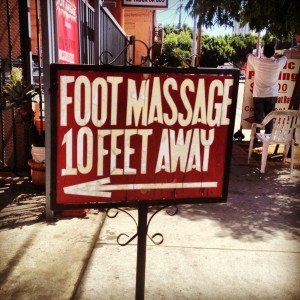Writing: The Toolbox II
All writing requires a reading audience. Words are a heap of lines and curves without witness. Until they are perceived, recognized, and understood by someone, words are like sigils without the magic. While musical and visual arts provide an immediate sensorial experience, writing requires a layered mental processing, the dismantling of symbol structures, ciphers, abstractions, and concepts, and the decoding of language by the reader. As writers, we have a special responsibility to communicate. Writing engages the mind of the participant, demands a response, and enacts a virtual and intentional interaction with the reader. There is no trick without the tricked. There is no rabbit and no magic hat, without the reader.
I continue my series on writing craft, based on my years of experience. The tools that I have collected over time are tools I reach for every time I begin a new page that is still blank, or edit a page already filled to the margins. These tools have also helped me to make a living with writing, by adhering to a few simple principles.
4. Never Ignore A Note
Not anyone else’s. And not your own. Because the goal is to be understood, and because it’s never perfect the first time around. Feedback is invaluable. Notes are gold. They are your lamplight in the darkness. They are clues when you can’t solve the puzzle. They are answers to problems you didn’t know you have. Good or not, every note has merit, because a note means someone didn’t understand something. And your job is to be understood.
I wrote several scripts for Jerry Bruckheimer and often his way of giving a note was to say, “I didn’t get that.” If one got defensive and tried to say, “Well, what I was trying to do—” he would stop you mid sentence and reiterate: “I didn’t get that.” You have to be able to not only take notes, but also to understand what they mean. When Jerry Bruckheimer said he didn’t get something, I was expected to know why and how I had to address his concern, without any further explanation from him. And I always knew what he meant.
Taking notes requires a similar empathic muscle as writing. You have to feel your characters’ feelings as much as you have to feel and speak to your readers’ feelings. Your readers need to “get it” and you need to know how to make them get it. That takes practice, and taking a lot of notes. From an editor with publishing experience who has critical feedback to give, to a novice reader who just didn’t understand—the witness, the reader, holds the answers in their hands. Reach out and take them. Forget fear. Forget pride. The work comes first.
5. Know Why You Want to Write
When I was just beginning to write screenplays in New York City, I was invited to a dinner with a friend who was an assistant editor at Random House, together with Fran Liebowitz. The conversation was going swimmingly until Fran, who is a sharp and caustically witty person, asked me why I wanted to write screenplays. My mind went blank. It was as if I had never had an intelligent thought in my head, ever. I stammered, “Because of the money.” I was mortified. It wasn’t true, but it was all I could think of on the spot. She looked a lot less than impressed. And it was baffling to me. Why didn’t I have an answer? I’m still cringing today.
As a writer, you will be expected to have an identity, a reason, a passion, a raison d’etre for your work. What drives you? How can you articulate that? What kind of writer are you? The reason readers pick up an author for more than one book, poem, or essay, is that the author gives them something consistent in the writing, and consistently something of themselves. A strong author shares their point of view with the reader, and helps the reader either find their own, form their own, or find a new one through the work. On the off chance you might find yourself sitting across from Fran Liebowitz, make sure you have an answer, any answer, to the question, why do you write. And if you don’t have one right now, make one up. And make sure it sounds good. Don’t get caught with your pants down, like me.
6. Know Your Brand
This relates to the previous point. There is no way of getting around branding. Not once you’re out there being read. The sooner you think about it, the better. As a writer, branding can be your friend. Think of any well-known author, and you will be able to articulate what their brand is. Kurt Vonnegut. Ernest Hemingway. Charles Bukowski. Virginia Woolf. Not only do most writers embrace and deliver a certain style, world, genre, topic, tone, and philosophy, many of them even have a distinctive look. In marketing, management knows that 20 percent of buyers account for 80 percent of profits, because of their loyalty to a brand. If something tastes good, people will buy it again. Make sure you know your flavor.
Branding creates customer loyalty and repeat purchases. That means publishers can sell your work. It will also commit you to be consistent once you have a brand, so make sure you know what you want to be. When author David Sedaris, whose enormously popular personal essays manage to sell book after book, takes a break from his essay brand and writes a collection of short stories, the approval “stars” on Amazon go down. Define your brand, that thing you do, and readers will come back for more.
All three of the above points have to do with your relationship with the reader. As you write, rewrite, and polish your work, take every opportunity to make your work the best it can be with the help of notes and feedback. Be mindful about who you are as a writer. Think about what lies behind your motivation to write, and what readers can expect from you when they come back for more. Do it, and you have the opportunity to create a lifelong relationship with your reader.
All images courtesy of Bettina Gilois
Bettina Gilois is a Los Angeles based writer whose screen credits include the Bruckheimer film “Glory Road,” for which she was nominated for the Humanitas Prize, as well as “McFarland, USA” starring Kevin Costner, and the HBO movie “Bessie” starring Queen Latifah for which she received an Emmy Nomination for Outstanding Writing. Her book, “Billion Dollar Painter” for Weinstein Books, came out in 2014. She is a special contributor for the Huffington Post in Arts and Culture, and has been a professor of screenwriting at Chapman University, St. John’s College Film Institute in Santa Fe, and now Hofstra University’s Herbert Lawrence School of Communications in NY.










